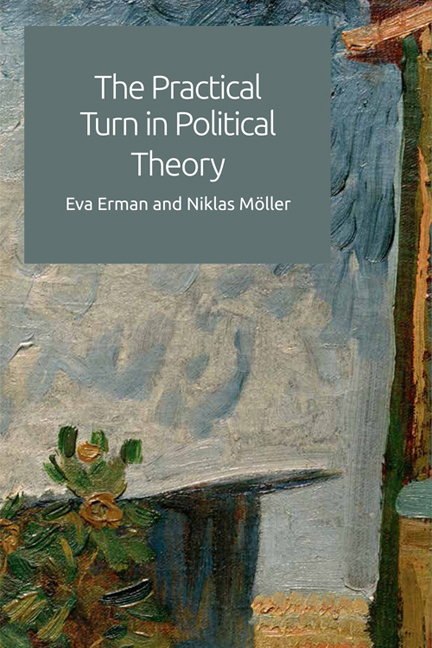5 - Epistemological Constraints
Published online by Cambridge University Press: 04 May 2021
Summary
If the methodological aspects of how to best understand the relationship between social and political practices and normative political principles have received a lot of attention in current debates, much less attention has been directed at epistemological aspects. Yet, during the last few years, we have witnessed an increased attempt to utilise a set of epistemic premises in order to justify constraints in political theory. In this chapter, we will discuss three such epistemological constraints which, while originating from substantially different debates, evoke interestingly similar justificatory strategies: according to its proponents, the epistemic premises pointed to not only supply contributing reasons for the constraints sought, but also entail a rational requirement to accept the constraints given the truth of the premises.
The first two epistemological constraints treated in the chapter originate from the practice-dependence debate. They both focus on alleged deficiencies in our first-order knowledge in the political domain. The first constraint relates to what we call ‘descriptive uncertainty’: we have, according to practice-dependent theorists, insufficient or too uncertain knowledge about central empirical circumstances of politics, and therefore a practice-dependent approach is required (and, implicitly, the statist or at least non-cosmopolitan conclusions they infer from using this approach). The second constraint relates to what we call ‘value uncertainty’, which refers to a state where we are uncertain about which values or principles we endorse. In such cases, it has recently been argued that a certain form of practice-dependent methodology (so-called ‘mediated deduction’) is required.
The proponents of the arguments of descriptive and value uncertainty further claim that, at least in most cases, these constraints hold in the world as we know it. Consequently, the arguments are allegedly not only valid (true given the premises) but also sound: based on true premises, the practice-dependent methodology is required in the political reality in which we find ourselves.
The third epistemological constraint is utilised by theorists referred to in Chapter 2 as ‘pragmatist epistemic theorists’, such as Cheryl Misak and Robert Talisse, who claim that a certain set of fundamental epistemic premises are sufficient for justifying democracy. More specifically, they argue that mainstream political theory (e.g. Rawls and Dworkin) has failed to offer a plausible justification of democracy since it relies on a justification in terms of moral values and principles that are liberal but not universally shared.
Information
- Type
- Chapter
- Information
- The Practical Turn in Political Theory , pp. 75 - 104Publisher: Edinburgh University PressPrint publication year: 2018
